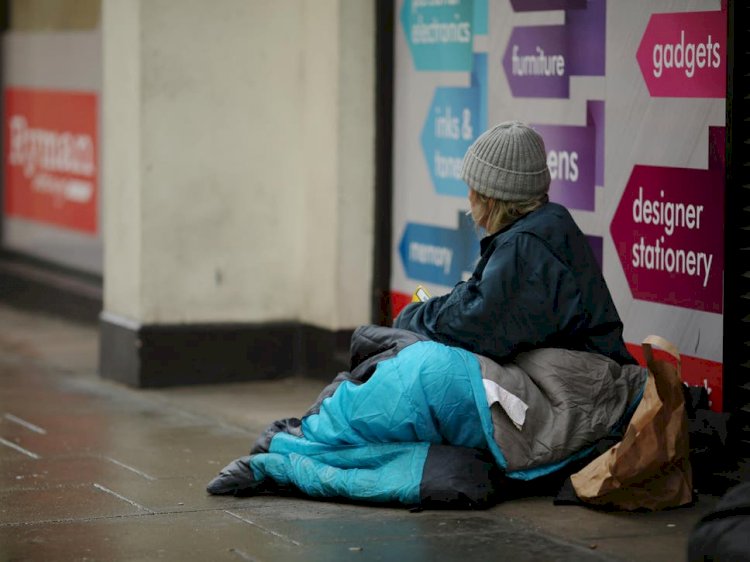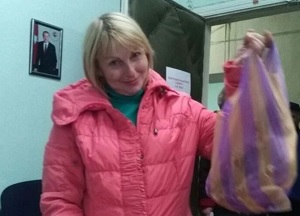Homeless people moved out of hotels prompting fears hundreds will be forced to return to streets
Police want to retest mystery saliva sample in MadelineMcCann investigation

Charities warn of 'disjointed' approach from central government as local authorites admit some rough sleepers have already had to leave hotels
Homeless people are being moved out of hotels they have been in since the start of lockdown, prompting fears that hundreds of vulnerable individuals will be displaced back onto the streets while the coronavirus crisis is still ongoing.
Almost 15,000 rough sleepers have been housed in hotels or emergency accommodation since the lockdown began under the 'Everyone In' scheme, whereby local authorities in the UK were required to house rough sleepers with a £3.2m pot of funding from central government.
Contracts between local authorities and hotels were thought to be terminating at the end of June at the earliest, but The Independent has learned that rough sleepers have already been asked to leave a number of hotels in London.
A spokesperson said the GLA was providing an offer of support to everyone in the hotels so that no one needs to return to rough sleeping when they leave, with anyone who has not yet positively moved on when the hotel closes offered a place in one of the remaining hotels.
However, charities said they feared limited resources and affordable accommodation options in many areas, and the “disjointed” approach to supporting people out of hotels from central government, would ultimately lead to people being returned to the streets.
On top of this, they were concerned that many people currently in hotels were not ordinarily eligible for housing due to their immigration status, meaning they face being left without support unless these restrictions are suspended.
“With more hotels due to close at the end of June there remains a very real risk of this happening on a greater scale, particularly given the speed at which councils are being asked to act, and the limited resources and affordable accommodation options in many areas,” he said.
He continued: “Very frustratingly, it is likely they will have no option but to return to the streets unless something drastic changes now. Migrants who live and work here legally, for example, are often not able to access housing support. They will find a huge challenge to access the private rental sector, especially if they have lost their jobs.
“At the moment, there's very little absolute clarity from the government about what will happen. Those guests in hotels and the charities like ours that work with them are not getting clear information on when the hotels are due to close and what will happen to those who aren't being supported by local councils.
“We know some people will be moved into other hotels as the first ones close, but the hotels can't stay open forever, and something needs to change, or hundreds of people are going to be displaced back to the streets while a public health crisis is still ongoing.”
Matt Downie, director of policy and external affairs at Crisis, said the current arrangements for providing ongoing support and accommodation once people leave the hotels were “completely disjointed”.
“We can expect over the next few weeks to see completely different approaches from different councils because there isn’t a coordinated scheme of what happens next that is directive from central government, or clarity of exactly what is expected from each council,” he said.
“It’s crunch-time. It’s either going to be a patchwork of different councils doing different things – the tragedy of some people going back to the street while others don’t – or it’s going to be a moment of real determined vision and effort from government to make sure this is the beginning of the end of homelessness. It’s unthinkable and simply cruel for people to go back to the streets after this."
Anna Miller, head of policy and advocacy at Doctors of the World UK, said: “This pandemic is not over, and any development that sees people returned to the streets makes a second wave of infections more likely.
“As we move into the next phase of the pandemic it's important we don’t make the mistakes of the past and force more people onto the streets. This means enabling local councils to provide homelessness support to everyone who needs it and ending visas that bar access to essential public services.”
A spokesperson from the Local Government Association, which represents councils in England, said local authorities were working up plans to support people to move on from emergency accommodation, but that for this to happen, “greater clarity” was needed from central government on what practical support would be available to councils.
A Ministry for Housing, Communities and Local Government spokesperson said: “We’ve been clear that councils must continue to provide safe accommodation to all vulnerable rough sleepers and support those moving on from emergency accommodation in the right way, to ensure their needs are met.
“Our new rough sleeping taskforce is ensuring that as many people as possible who have been brought in off the streets in this pandemic do not return to sleeping rough.
“To help achieve this, we have provided £3.2bn for councils to help meet Covid-19 pressures on top of specific funding for rough sleeping services. And we have accelerated plans– backed by £433m– which will deliver 6,000 additional homes for former rough sleepers across the country.“
- May BulmanSocial Affairs Correspondent






































